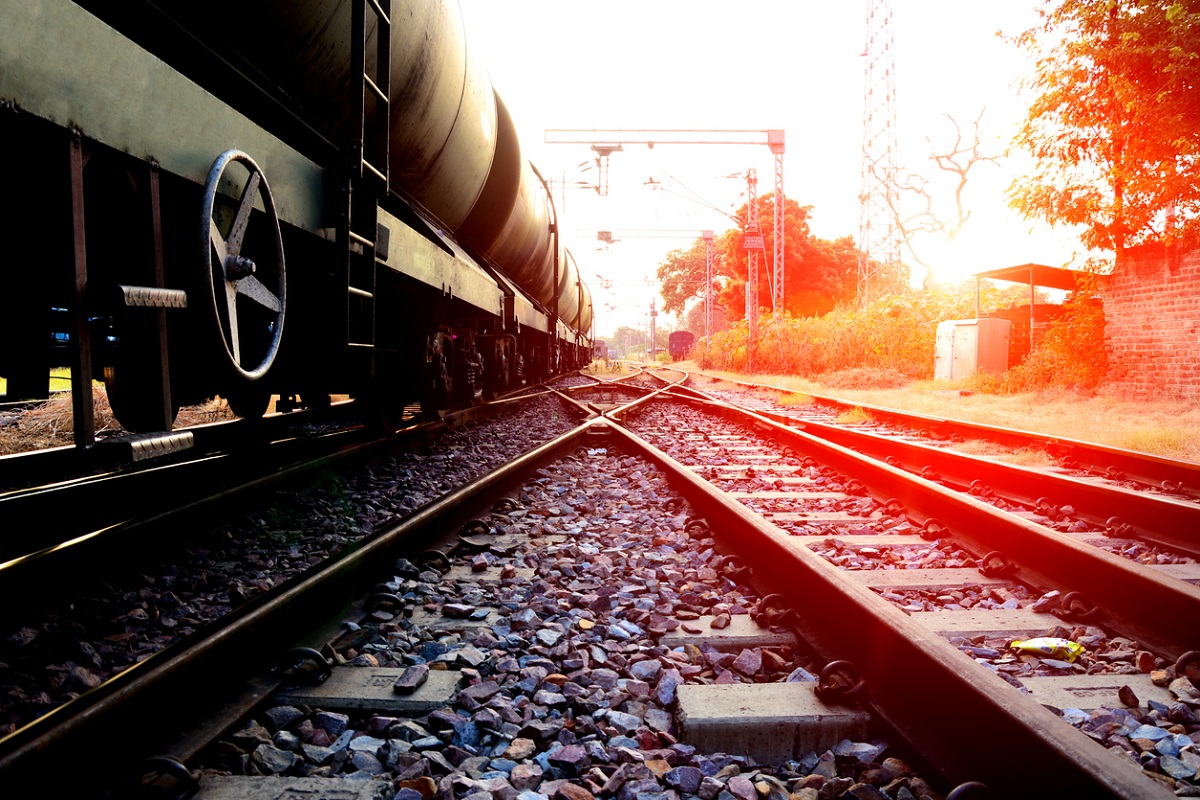Mahakumbh: Railways work ensure devotees have smooth journey
Despite continued heavy rush, Indian Railways is working on war footing to serve the devotees by bringing them in and taking back their home during the ongoing Mahakumbh.
Indian Railways has electrified 63,456 Route Kilometers (RKMs) upto April which is more than 96 per cent of the total broad-gauge network of Indian Railways.

(Representational Image; Source: iStock)
Indian Railways is an environment-friendly means of bulk transportation. For environment protection, Railways have been taking continuous initiatives that have a positive impact on the environment by way of reducing pollution/GHG emissions, promoting resources and energy efficiency and contributing to sustainability.
Indian Railways has electrified 63,456 Route Kilometers (RKMs) upto April which is more than 96 per cent of the total broad-gauge network of Indian Railways.
Advertisement
“A total of 2,637 stations and service buildings have been provided with solar roof-top plants with a total power generation capacity of 177 MW,” the Railways Ministry said on Thursday.
Advertisement
Indian Railways, like every year, observed World Environment Day on June 5 keeping in line with the theme of this year’s World Environment Day “Our land, Our Future”. World Environment Day 2024 themes focus on land restoration, halting desertification and drought resilience.
Jaya Varma Sinha, Chairperson & CEO, Railway Board and other senior officials of Railway Board were present at the event.
This year, Indian Railways is also taking major outreach and advocacy activities for mass mobilization on ‘Mission LIFE’ with the aim to sensitise people about the impact of behavioral change on the environment during the month of June. As of now, 249 awareness and 147 action events have been conducted across all Indian Railways in which 4,921 participants have participated. A total number of 4,395 ‘Mission LiFE’ pledges have also been administered across Indian Railways.
Some of the major policy initiatives taken by Indian Railways in order to be sustainable include issuing with Super-ECBC compliance energy efficiency guidelines for re-development of railway stations and other buildings .
These Super ECBC guidelines have been developed with a goal to minimize energy demand through climatic responsive building design and energy efficient technologies.
For the Re-development of the Major Railway Stations, Indian Railways has provided guidelines in the form of Environment Management Plan. These guidelines have to be followed in the Zonal Railways in order to mitigate the effects of construction in surrounding areas.
As a policy initiative, Indian Railways has introduced the concept of assigning Carbon Saving Points termed as “Rail Green Points” to its freight customers which give details of the expected saving of carbon emission. This initiative of customer participation in creating environmental impact will motivate them to transport more by train in future.
Indian Railway has implemented comprehensive waste management strategies that emphasise recycling, reduction and its responsible disposal. Creation of green space, proper disposal of hazardous waste materials and recharging ground water aquifers can reverse the land degradation.
Indian Railways has taken major steps in order to be energy efficient in its production process. At present all 8 PUs and 44 workshops are ISO-50001 certified which shows the commitment towards energy conservation and energy efficiency.
Around 700 major railway stations have been certified for implementation of the Environment Management System to ISO 14001. Further, Indian Railways have installed around 65 Effluent Treatment Plants, 86 Water Recycling Plants, 90 Sewage Treatment Plants, 18 Waste to Energy Plants, 186 Waste to Compost and 32 Solid Waste Management Plants. Around 208 stations have composting plants and 193 Railway stations have Material Recovery Facilities.
Around 826 Plastic Water Bottle Crushing Machines have been installed at major railway stations.
“As a part of our Clean India movement, Indian Railways has taken a number of initiatives in order to provide a hygienic environment: Indian Railways has ensured the fitment of Bio-toilets in all its coaches which has eliminated the problem of direct discharge of human waste from trains. Taking a step ahead, with an aim to reduce the water consumption in toilets, Indian Railways has started the fitment of bio-vacuum toilets in new coaches.
A total of around 76 lakhs saplings have been planted across the railways in the year 2023-24,” the Ministry said.
Advertisement